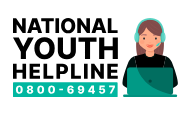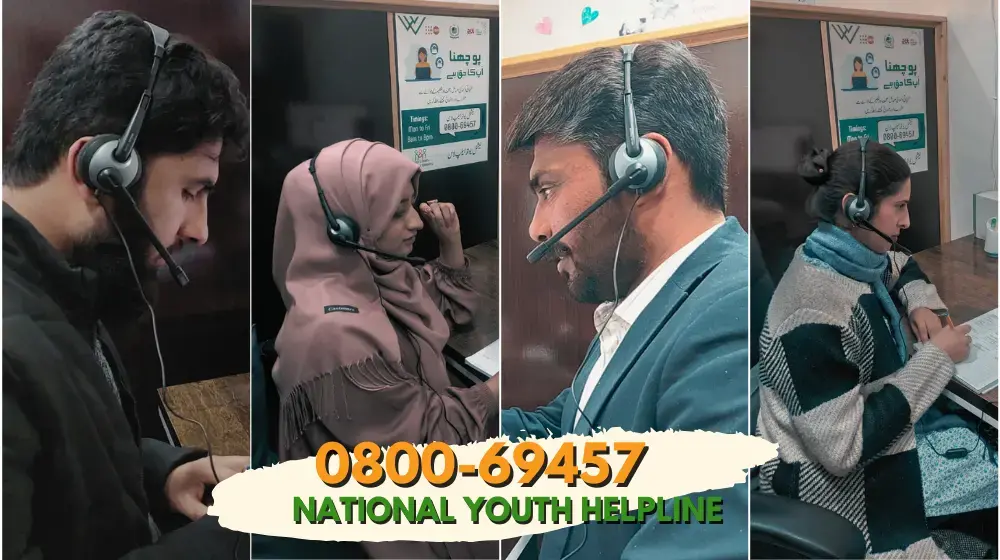Rights and needs of adolescents and youth in Pakistan are a core priority for UNFPA. We work with the government to strengthen its governance and policy framework to institutionalise rights of young people. Through education we work to empower young minds to realise their rights. Through our support and advocacy for youth-led platforms, we hope to promote youth engagement and leadership. Mainly, UNFPA works on:
- Strengthening policy, legal and accountability frameworks for youth policy reforms and increased investment in adolescent and youth sexual and reproductive health
- Policy advice and technical support for the development and implementation of adolescent and youth engagement strategies and action plans integrating sexual and reproductive health
- Scaling up adolescents and youth-led innovative initiatives, platforms and engagement opportunities
- Generating evidence on adolescent and youth sexual and reproductive health through operational research and studies
- Adopting new technologies and models, including youth-friendly online applications and helplines to expand young people’s access to sexual and reproductive health information
- Strengthening national and sub-national capacities to advance life skills-based education for in and out of school adolescents and youth.
What do we do
Life Skills Based Education (in and out of school)
UNFPA partnered with the Ministry of Federal Education and Professional Training (MOFE &PT) and National Curriculum Council (NCC) for the development of the first National Guidelines on LSBE. Topics of gender sensitive, age appropriate LSBE were also integrated for the first time into the Single National Curriculum for grades 1-8. This curriculum was rolled out in public schools, private schools and madrassas in 2021. Through its continuing partnership with the ministry and NCC, UNFPA is working on mainstreaming LSBE as a standalone subject in-school and has also developed a customised curriculum for adolescents and youth with disabilities, piloted in KP in 2023.
UNFPA has been progressively working with provincial governments, mainly school education departments for the adoption of the LSBE guidelines and capacity building of teachers at the primary and secondary level.
In 2023, UNFPA developed a roadmap strategy for engaging and mainstreaming out of school adolescents and youth through Life Skills Based Education.
Access to reproductive health and rights for youth an adolescents
UNFPA works to increase access and information regarding reproductive health services among adolescents and youth as we believe that it is crucial for every young person in Pakistan to make informed decisions regarding their body, their life and their future.
UNFPA has partnered with Higher Education Commission to establish a national youth helpline to provide psychosocial support, counselling on reproductive health queries and referrals for gender based violence cases.

UNFPA has also set up adolescent and youth friendly spaces across the country. These are safe spaces through which young people can access information regarding their health and wellbeing, receive psychosocial support, engage in peer to peer learning including life skills, leadership skills, income earning and Information technology skills, recreation and sports. By fostering a sense of belonging and empowerment, these spaces motivate young people to actively participate in their own education and personal development. Including some essential awareness and information on health and wellbeing and response services. These spaces are inclusive, catering to all adolescents and young individuals, including those with disabilities
Support to national and provincial policy frameworks on youth
UNFPA supported the development of the Punjab Youth Policy in 2012 and recently supported the development of GB’s first youth policy 2024. UNFPA has also provided its support to other provinces on the development of youth policy instruments including costed plans and monitoring and evaluation frameworks.
In 2021, UNFPA contributed to the first Youth Development Index for Pakistan. In 2024-25, UNFPA will work closely with the Prime Minister’s Youth Programme on updating the youth development index report.
UNFPA has a longstanding partnership with the Prime Minister’s Youth Programme, where in the past we have supported the capacity building of its National Youth Council and integration of reproductive health rights into the national youth development framework. In 2024-25, UNFPA is closely working with the Prime Minister’s Youth Programme to support its youth initiatives, including national volunteer corps, national youth policy and national youth council.
Supporting the capacity building of youth organisations/ young people
To empower young people, UNFPA supports youth-led orgnaisations and initiatives through capacity building, small grants, innovation challenges and inclusion of young voices in policy level decision making and at international youth forums.
Collaborative approach
UNFPA takes a collaborative approach in implementing its interventions relating to adolescents and youth, from joint partnerships within the UN to exploring collaborative projects with the government and private sector. UNFPA initiated and currently leads the working group on youth within the UN. The group was initiated to support joint programming within the UN system.


